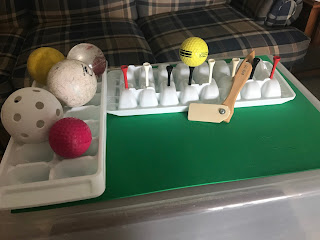Health Made Hard
Today I was doing a workout class with one of my friends who is going to school to be teacher. Even though she is very educated, we both have two totally different areas of knowledge. During the class the teacher kept telling us to adduct and abduct our legs/arms, make sure our foot was flexed or extended, and so on. She also kept referring to our muscle groups in very specific terms. Anytime she would use this terminology, my friend would have to completely stop her workout and watch the instructor so she could make sure she was doing the right thing. At the end of the workout, I asked if she knew what any of those words meant and she told me she didn't and it made her ability to do the workout more difficult.
I think very similar to health literacy. My workout buddy wants to be able to maintain her health, but it is made significantly more difficult by words that she does not know and does not necessarily need to know for her profession. The lack of clarity could lead her to not go back to the workout class or injure herself by doing an exercise incorrectly.
Health literacy is important because depends on a person's ability to navigate the healthcare system, share important personal information, participate in self-care, and understand the important concept of their health. This is dependent on communication with a person's health care providers, but as many of us have experienced, doctors often do not have time to answer many questions. As occupational therapist, we need to be able to clear up any confusion and help educate our clients on their health. We need to create an enviorment where our clients feel comfortable coming to us with their confusion. Like my workout partner, it is hard for anyone to know what to do if they don't understand the vocabulary being used. We want to create a more healthy society, but we can not do it in a way that makes people feel dumb. Using terminology that people do not understand is a bad idea for anyone in the health profession.
I think very similar to health literacy. My workout buddy wants to be able to maintain her health, but it is made significantly more difficult by words that she does not know and does not necessarily need to know for her profession. The lack of clarity could lead her to not go back to the workout class or injure herself by doing an exercise incorrectly.
Health literacy is important because depends on a person's ability to navigate the healthcare system, share important personal information, participate in self-care, and understand the important concept of their health. This is dependent on communication with a person's health care providers, but as many of us have experienced, doctors often do not have time to answer many questions. As occupational therapist, we need to be able to clear up any confusion and help educate our clients on their health. We need to create an enviorment where our clients feel comfortable coming to us with their confusion. Like my workout partner, it is hard for anyone to know what to do if they don't understand the vocabulary being used. We want to create a more healthy society, but we can not do it in a way that makes people feel dumb. Using terminology that people do not understand is a bad idea for anyone in the health profession.

Comments
Post a Comment